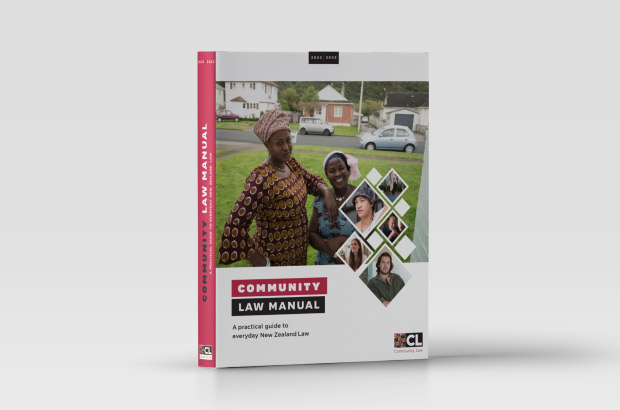Your wellbeing at work
Health and safety protections
Your employer has a general duty to protect your health and safety at work as far as reasonable. They also have some more specific duties, like making sure machinery and equipment are safe for use and making sure you have the required training and supervision. This section covers the minimum standards around these duties.
These health and safety duties apply not just to your physical work environment but also to your psychological work environment. This could cover issues like work-related stress and fatigue resulting from heavy workloads, deadlines, shift work or overtime.
Health and safety laws apply to any “person carrying on a business or undertaking” (known as “PCBU”). This is a broad category and includes most working arrangements, including building contractors, fast-food franchisors and retailers. All “PCBUs” owe health and safety duties to their workers.
In the context of health and safety laws, “workers” is a broad term and includes employees, contractors, subcontractors, employees of labour hire companies and some regular volunteers (see below).
Your rights and responsibilities
What are my employer’s responsibilities around my health and safety?
Your employer has a general duty to protect your health and safety at work.
They also have the following specific health and safety duties:
Duties around workplace safety
- to provide and maintain a risk-free work environment, and
- to make sure the machinery and equipment in the workplace are safe, and
- to make sure there are safe processes and facilities for using, handling and storing equipment and substances, and
- to provide you with adequate facilities for your welfare at work and making sure you have access to them.
Duties around process, system and policies
- to make sure the work systems are safe, and
- to provide all necessary information, training, instruction and supervision, and
- to monitor the health of workers and the conditions at the workplace in order to prevent injuries and illness, and
- to provide policies that make sure workers’ views on health and safety are taken into account, and
- to make sure workers have a clear way to suggest changes on a day-to-day basis.
Am I protected by health and safety at work laws?
Health and Safety at Work Act 2015, ss 17, 19, 36(1)
The main protections of the Health and Safety at Work Act cover the following people:
- Paid workers – This includes employees; independent contractors and subcontractors; employees of labour hire companies working at the worksite of a third party like a construction company; homeworkers and outworkers; and apprentices and trainees.
- On work experience / trials – You’re also covered if you’re working unpaid because you’re on work experience or a work trial.
- Some regular volunteers – The Health and Safety at Work Act covers a limited category of volunteers who do regular and ongoing work. You’re protected as one of these volunteers (called “volunteer workers” in the Act) only if:
- the organisation you volunteer for employs one or more staff, and
- the volunteer work you do is regular and ongoing and is an “integral part” of the organisation, and
- you’re not involved in any of the following exempt activities: fundraising; helping with sport or recreation (like coaching your child’s team for their school or club); helping schools or other educational institutions with off-site trips and activities; or providing care in your own home.
Your employer has a lesser, more general obligation to make sure that as far as is reasonably practicable, the health and safety of people other than their workers isn’t put at risk by the work of the business or organisation. They will owe this duty to:
- customers and clients, and
- visitors, and
- volunteers who don’t qualify as “volunteer workers,” either because they’re more casual volunteers or because they do one of the exempt activities, like fundraising or sports coaching.
Who’s responsible for protecting my health and safety at work?
Health and Safety at Work Act 2015, s 36
The main responsibility for health and safety in your workplace lies with your employer or whoever else is responsible for the work. The Health and Safety at Work Act gives them what it calls the “primary duty” for health and safety. They have to do everything “reasonably practicable” to protect your health and safety at work (see below for a definition of “reasonably practicable”).
People other than your employer also have some health and safety duties in the workplace. This could be people who control or manage a workplace, such as the building owner, the head contractor on a building project where you’re working for a subcontractor or where you’re employed by a labour hire company.
What does the duty to do everything “reasonably practicable” mean?
Health and Safety at Work Act 2015, s 22
Under the health and safety laws, “reasonably practicable” means that your employer has to do everything that they’re reasonably able to do to protect your health and safety at work. What is reasonable here will depend on:
- how likely it is that the particular hazard or risk will arise, and
- how much harm could result, and
- what the employer knows (or should know) about the hazard or risk and how it can be eliminated or minimised, and
- whether ways of eliminating or minimising the risk are available at the time and are suitable, and
- the cost of removing or minimising the risk.
What if I am an independent contractor?
Health and Safety at Work Act 2015, ss 17, 19, 36
If you’re working as an independent contractor rather than as an employee, the person you’re working for – called a “principal” – owes the same health and safety obligations to you as employers owe their employees.
Your principal also owes these duties to any employee or subcontractor that you, the contractor, hire to carry out the work you contracted with the principal to do. You will also have health and safety obligations as an employer or as a principal to your subcontractor.
What if I’m self-employed?
If you’re self-employed, you must make sure you’re safe while you’re working as far as is reasonably practicable.
If it’s just you at your workplace, it’s unlikely that WorkSafe would investigate to make sure that you’re complying with your health and safety obligations.
However, if your work might impact others – for example, contractors, clients, members of the public or volunteers – you’ll be responsible for taking steps to protect their health and safety as well.
You should:
- consider creating a safety system that identifies potential hazards (and how they could be removed or minimised), and
- have an up-to-date plan for emergencies, and
- set up a process to report accidents and incidents – if an incident happens, you’re required to notify WorkSafe and preserve the scene until you get the all-clear.
Who else has health and safety responsibilities?
Health and Safety at Work Act 2015, ss 37–40
- Other people controlling workplaces and machinery – A business or organisation that manages or controls a workplace must make sure, as far as is reasonably practicable, that the workplace (including its entrances and exits) doesn’t pose any risks to anyone. If you work in a shop in a large retail centre, for example, this would include the owner of the retail centre and the centre’s manager. People who manufacture or design machinery and equipment or who manage or control it also owe a duty to make sure they are safe.
- Employees – You must take reasonable care for your own health safety while at work (see below).
What happens if there’s an injury or accident at work?
When should an accident or injury be reported?
Health and Safety at Work Act 2015, ss 23–25, 56, 57
Your employer has a legal responsibility to notify WorkSafe New Zealand as soon as possible if there’s a serious injury at your work or a dangerous incident like an explosion or gas leak.
Who is responsible for reporting?
This is your employer’s responsibility. They must also ensure that the site is not disturbed until an inspector arrives and keep records of what happened. If your employer doesn’t notify WorkSafe as required, they could be convicted and fined up to $10,000 if they are an individual and up to $50,000 if they are a company.


